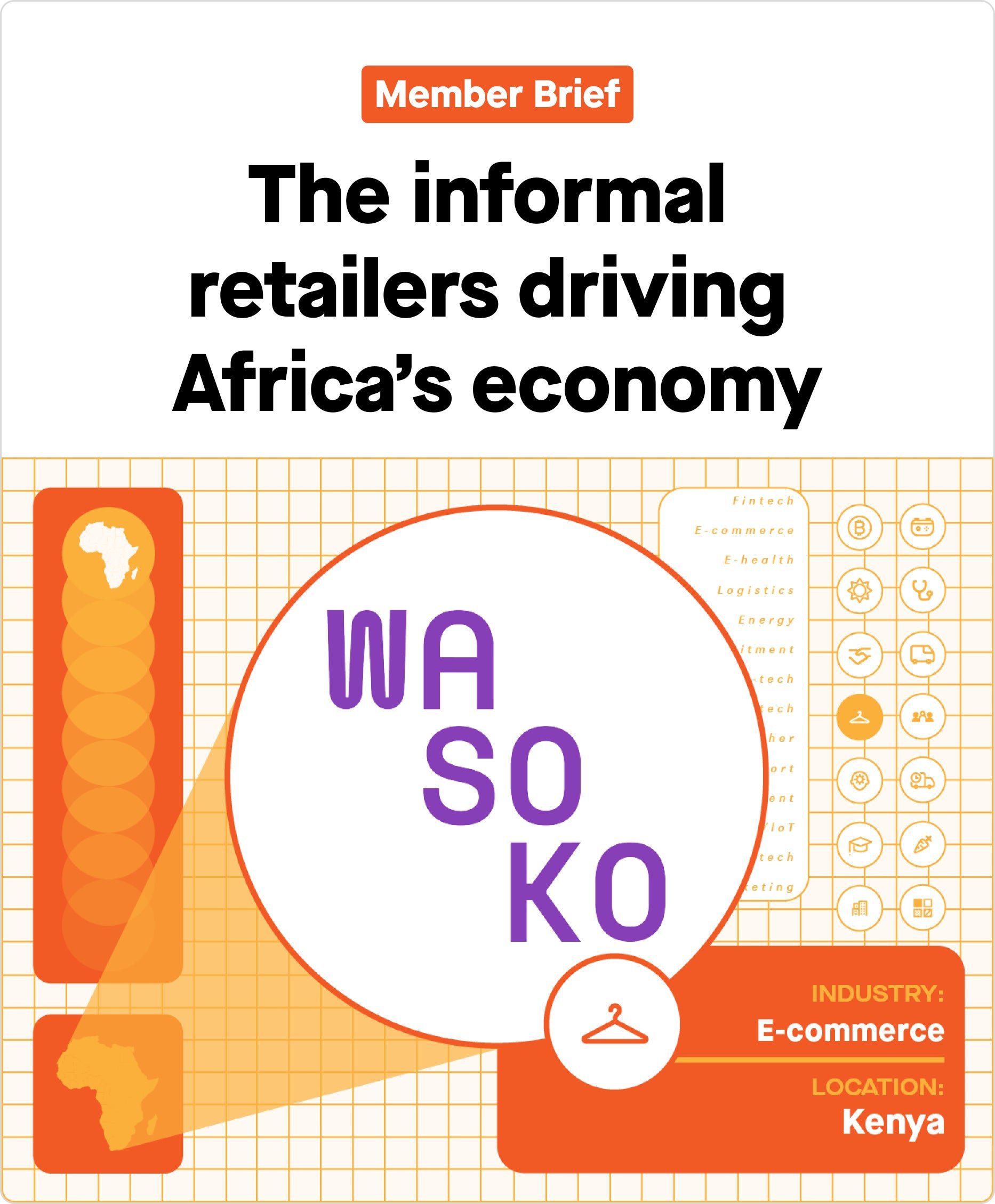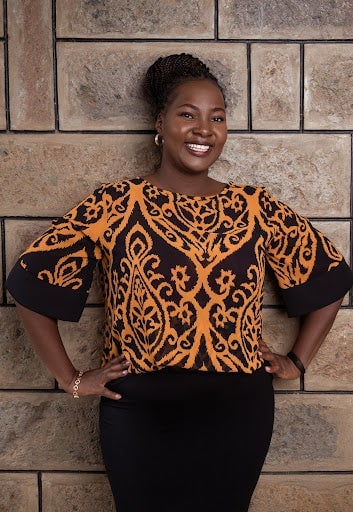✦ The informal retailers driving Africa’s economy
Hi Quartz Africa members,



Hi Quartz Africa members,
Informal shops, open market stalls, and hawkers are examples of the informal operations that dominate the retail market in Africa. Informal retailing makes up 67% of total retail across Kenya, Nigeria, and South Africa according to a 2019 report by market research company Euromonitor.
A number of startups in the B2B commerce space in Africa are focused on powering Africa’s informal retail markets by delivering new efficient and convenient experiences for African retailers—enabling them to do more and build stronger businesses.
Many African households get food and other essential items from informal shops and grocers in their neighborhoods.
The numbers vary from country to country: Small, local, and informal retail transactions account for 96% of retail transactions in Ghana, 98% in Nigeria and Cameroon, and 70% in Kenya, according to a United Nations Economic Commission for Africa (UNECA) report. South Africa is an outlier in this regard as over 60% of South Africans shop in formal retail supermarkets.
An IMF report states that the informal economy comprises economic activities that operate outside of legal and administrative rules and oversight—usually because doing so helps them avoid various costs. However, this also excludes them from access to benefits and rights enjoyed by duly registered businesses.
The informal nature of retail in Africa means that retailers face numerous challenges despite being relied on by a vast majority of the population. Several barriers make it difficult for informal retailers to grow their businesses sustainably, from limited access to suppliers to a lack of working capital and financing.
But, thanks to a new class of startups, informal businesses are about to get much needed support.
Cheat Sheet
💡The opportunity: Informal retailers are the dominant players in Africa’s retail market, but disjointed structures make it difficult for them to effectively run and grow their businesses.
🤔The challenge: Infrastructural challenges, underdeveloped distribution channels, and limited access to working capital and credit are among factors that combine to create supply chain hurdles for informal retailers, driving up their costs. Many informal retailers in Africa also face harassment from authorities.
🗺The roadmap: Startups must formulate solutions that make business easier and more efficient for informal retailers, by addressing needs including inventory management, logistics, and mobility, and access to credit.
💰The stakeholders: Startups, financiers, suppliers, and government agencies all have roles to play to empower informal retailers to do more.
By the digits
$380 billion: The combined value of traditional, modern, and e-commerce retailing in sub-Saharan Africa in 2021
67%: The share of total retail accounted for by informal channels across Kenya, Nigeria, and South Africa in 2019
40-90%: The share of total food sales from informal channels in sub-Saharan Africa—excluding South Africa, which has a high level of formal retail
70%: Share of employment in sub-Saharan Africa from the informal economy. In North Africa it’s 62%
55%: Share of sub-Saharan Africa’s GDP from the informal economy
9 in 10: Share of informal sector workers in sub-Saharan Africa who are women and/or youth
Case Study
Startup: Wasoko
Sector: E-commerce
HQ: Nairobi, Kenya
Valuation: $625 million
Formerly known as SokoWatch, B2B retail commerce startup Wasoko in March 2022 closed a $125 million Series B at a $625 million valuation. It was the second largest non-fintech round in Africa after Andela and the largest in the B2B retail e-commerce space.
The startup enables informal retailers to conveniently stock their shops, eliminating the hassle of dealing with different suppliers and distributors. Local retailers order products via SMS or mobile app, and receive free same-day delivery to their stores.
Wasoko also offers retailers customized lines of credit. It provides them with working capital, allowing retailers to order and sell products before paying for them. The platform also includes data-based insights for retailers.
The startup has witnessed tremendous growth since it was established in 2014. Earlier this year, it was named Africa’s fastest growing company by the Financial Times with a compounded annual growth rate of 346%.
Wasoko’s revenues increased from $0.3 million in 2017 to $27.4 million in 2020. The number of employees rose from 57 to 372 over the same period.
“We’re not the same company we were two years ago. Back then, we really had to convince suppliers [to work with us] but now the suppliers are the ones coming to us,” Wasoko’s Global Head of Operational Excellence Fatma Nasujo tells Quartz.
The credit offering in particular has been a key driver of growth for the company. In Kenya, for example, many shopkeepers allow customers to buy food and other essential items on credit.
Between May 2020 and July 2021, 33% of households in Kenya bought food on credit from shopkeepers according to a Financial Sector Deepening (FSD) Kenya report. At the height of the pandemic, between March and May 2020, the figure stood at 43% of households, indicating just how important informal retailers are.
These retailers often face cashflow challenges as a result of extending credit lines to customers, making it difficult to purchase adequate stock or expand their businesses. However, they have no option but to offer credit as customers sometimes have low or infrequent incomes.
Wasoko makes things easier for retailers as they can easily stock up their shops, avoid logistical costs, and sell over a period of time before making the payments. The consistent sales data also allows them access to increased financing enabling them to expand their businesses.
Wasoko is currently operational in Kenya, Tanzania, Uganda, Rwanda, Ivory Coast, and Senegal. With its latest fundraise, it is looking to consolidate its presence in its current markets by expanding its footprint to more cities and towns.
In conversation with

Fatma Nasujo is the Global Head of Operational Excellence at Wasoko.
💰 On the impact of offering working capital to informal retailers:
The Buy Now Pay Later scheme helps retailers to have consistent stock and worry less about wholesalers. In fact, businesses now ask for that and those with BNPL are growing faster—their order sizes on average are two times larger than our cash-only customers.
🏍️ On moving from electric 3-wheelers for deliveries to trucks:
We started with the tuk tuks (3-wheelers) because of the narrow roads in some areas but we found spare parts to be a challenge. We’ve grown to use mostly 3-6 ton trucks. We shifted to trucks because of the higher capacity, and it’s cheaper.
🤝 On working with third-party drivers to make deliveries:
Working with 3rd party drivers has allowed us to scale. We work with partners in six different countries. In Kenya alone, We have 400 vehicles doing 6,000 deliveries a day.
Logistics deals to watch
Senegalese startup PAPS in January 2022 raised a $4.5 million pre-Series A funding round to help it scale its logistics solution across Francophone Africa. Its technology allows businesses of all sizes to effectively manage their logistics needs, with services including storage, international transport, and last mile deliveries.
Kenya-based Digital trucking logistics startup Amitruck secured $4 million in a seed funding round in February 2022. The startup connects clients directly with vetted transporters cutting out middlemen.
In November 2020, Lori Systems secured funding and support from Imperial, an African and European-focused provider of integrated market access and logistics solutions, to expand its product across Africa after closing a $20 million Series A in 2019. The startup provides supply chain management solutions for cargo owners.
This member brief was prepared while listening to East Mpaka London, an album by Buruklyn Boyz.
Enjoy the rest of your week!
—Martin Siele, Nairobi-based Quartz contributor
One 🤑 thing
In 2019, loans from shopkeepers in Kenya constituted the largest proportion of credit followed by loans from family and friends and mobile banks, according to the Kenya Financial Sector Stability Report. The default rate for shopkeeper’s credit in the form of goods and services was 45.6% but shopkeeper’s credit in the form of cash had a default rate of just 1.8%.